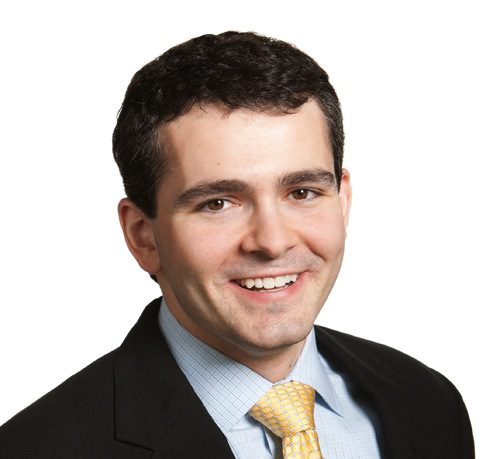Why Can’t Ryan T. Anderson Be Friends?

My friend the academic Catholic theologian Chris Roberts e-mails:
Dear Rod,
Last week when we had breakfast in Philadelphia, you mentioned that Ryan Anderson’s high school deleted a post praising Ryan, and that this had happened under controversial circumstances. Apparently most of this debate happened on Facebook, which I missed, since I’m not a Facebook member. I was very interested because, as you know, I admire Ryan’s work and graduated from that same high school. In the last four days, I have had the chance to read some of the articles about the situation, as well as exchange several emails with Headmaster Matt Micciche.
Headmaster Micciche asked me not to quote him publically. I agreed. But as I also told him, my words are my own, so what follows is a paraphrase of what I said to him. Please feel free to quote it on your blog if you think your readers are interested.
Best wishes,
Chris
Here’s Chris’s letter:
Dear Headmaster Micciche,
I graduated from Friends in 1987. Like Ryan Anderson, I’m a past winner of the annual “Bliss Forbush Sr. Award For [the] Spirit of Fellowship Practiced by a Senior Throughout his or her School Life.” I mention that in order to say that, like Ryan, I thrived at the school and was happy at Friends. Also, once upon a time, it was possible for somebody like me to be a leader at the school. To this day, I wish the school well and would like to see it flourish.
I was the editor of the Quaker Quill in 1986-1987. On assignment for a journalism class, I remember going to interview Dr. Byron Forbush about a concept that had recently entered the school’s lexicon as a virtue to be cultivated. That word, reasonably new at the time but now central to the school’s identity, was “diversity.” I remember learning at Friends that among many other things, diversity meant dialogue. It meant be open to new ideas and identities, and testing them in conversation and encounter. It meant standing up to make sure all perspectives get a hearing, even unpopular ones. [I just noticed today, after my correspondence with Headmaster Micciche, that this idea is even articulated in the school’s current mission statement: “The search for truth requires a willingness to listen openly to the ideas of others, even in fields of controversy.”]
By taking down the Facebook post praising Ryan and disavowing the possibility that his work is important, honorable, and wise, it appears that you’ve given up engaging with Ryan and his ideas. It appears that, rather than engage with Ryan’s work and what he is actually saying, you are letting the Friends School community be governed by an uninformed crowd’s emotional reaction (as you have put it, “the anguish and confusion” of many members in the community).
You could have read Ryan’s work and engaged it. You could have said “as an educational leader, I want you to know that even if you find Ryan’s conclusions distasteful, his ideas are rigorous and deserve a hearing. I’ve invited Ryan to come to school and make his case.” But you did the opposite.
Ryan’s work should not be frightening. If people are anguished by it, the fault is not Ryan’s. The whole point of the original Washington Post article was how patient and civil Ryan is. If his principled philosophical arguments cannot be engaged in an academic environment like Friends School, then the school is letting down its own ideals.
Take, for example, one idea that Ryan questions: the proposition that marriage should be modified to include same sex partners. This idea is new in our civilization and even more recent in our legal system. Whether that proposition is right or wrong, to give the idea examination in an academic manner, to give it a critical questioning, which is what Ryan does, is a legitimate exercise. That kind of discussion is what philosophers, theologians and legal scholars are supposed to do. If a student thinks such a discussion makes them personally anguished or confused, then the educator’s job is to help the student get a better purchase on what is actually at stake and return to the conversation with a clearer head. I suggest that’s especially so for people who hold progressive views at odds with Ryan’s — progressives should welcome the chance to test their ideas against the anvil of the most rigorous and civil counter-arguments. Again, that’s what academic philosophical conversation is all about, and preparing students to have that kind of discussion should be a school goal.
Ryan deserves better than the way you have treated him, and Friends School deserves better. Ryan’s arguments are honest philosophical arguments in the tradition of Aristotle and Aquinas. Knowing how to engage this tradition ought to be a characteristic of a truly educated Friends graduate. But by forgoing that engagement, you’ve violated what I once understood to be the Quaker way of handling diversity. The Washington Post could treat Ryan with respect, so why not Friends School?
Incidentally, I agree with Ryan on the debate about marriage. I too have written widely on the question of Christian tradition, sexual ethics, and homosexuality. See here for more about my work. So that makes two of us, two Bliss Forbush award winners who once regarded our old school with affection, and who are now wondering if engaging even unpopular ideas with respect is still possible at the school.
Sincerely,
Christopher C. Roberts, class of 1987